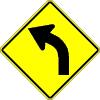Assigning Blame
In January 2001, George Bush took office after receiving just under 48% of the popular vote for president in the November 2000 elections. In the aftermath of the elections, many Democratic partisans blamed Green Party candidate Ralph Nader and his followers for taking away votes in key states from Democrat Al Gore.
The Democrats had a point. Nader surely won votes that otherwise would have gone to Gore, although many Green voters would otherwise have abstained, and many Nader voters voted for Democrats in Congressional and gubernatorial races. But those same Democratic partisans have a much bigger problem—the turncoats in their midst. Lots of Democrats voted for Bush in 2000, and millions more are now propping up his popularity, despite a term in office riddled with error, cant, and sophistry.
It is hard to imagine George W. Bush winning over all but the most conservative voters if he had promised on the campaign trail what he has delivered in office.
- Bush might have promised to use the entire projected surplus, and then some, on a massive tax cut to benefit the wealthiest Americans. He could have promised to try to overhaul the income tax system so that the investor class would pay no taxes on dividends but displaced workers would pay taxes on their unemployment benefits.
- Bush might have promised that tax cuts for the rich would be the stock answer to any question about the economy. Bad economic times and good would call for more ways for the rich to save on taxes.
- Bush might have promised to coddle corporations that swindle investors and workers. He could have promised that corporations that reincorporated in the file drawers of overseas law firms would suffer few consequences and would still be eligible for lucrative government contracts.
- Bush might have highlighted his plans to devise an energy policy by consulting energy companies but not environmental groups.
- While Bush did promise to end the unfairness of convictions for terrorism that used secret evidence, he might have promised to make secret evidence only a starting point. He could have promised to institute secret trials and secret appeals for resident aliens suspected of terrorism, or to establish military tribunals for "enemy combatants."
- Bush might have promised to entrench fearmongering in government. Where other, stronger, wiser presidents urged Americans not to be fearful, he would send Americans scurrying to Home Depot to buy plastic sheeting and duct tape. He could have promised to confuse Americans about the threats that they face from Saddam Hussein and al-Qaeda.
- Bush could have promised to antagonize our allies in Asia, Europe, South America, and Africa. He might have promised to walk away from the Kyoto Protocol on carbon dioxide emissions, or the Biological Weapons Convention.
Through the summer of 2001, national opinion polls found that the proportion of American adults who approved of George Bush's job as president was at or slightly above the 48% of the vote that he garnered in the 2000 election. After 11 September, Bush's job approval ratings skyrocketed, as Americans rallied around their government officials. But the September attacks happened almost 18 months ago. Since then, the economy has shown a lackluster performance at best, and a double-dip recession remains a real possibility. The forces behind the attacks remain at large. And the actually existing Bush administration has proven to be more conservative than Bush was, at least outwardly, on the campaign trail. Bush's popularity has fallen considerably since its gaudy heights in the autumn of 2001, but it still remains above 50% in all of the major polls.
Democrats cannot blame Bush's continued popularity on Ralph Nader or on the Green Party. They can, however, blame Democrats. It is reasonable for Republicans, even most Republicans, to support a president who is leader of their party, no matter how incompetent he may be. When the Gallup Poll reports that 58% of Americans approve of George Bush's job as President, it means that millions of Democrats are drinking the Republican Kool-Aid.
It is hard to blame the Democratic rank and file for emulating their political leaders. The Democratic congressional leadership has been consistent about military adventures since September 2001, consistent in rfusing to challenge the President. Even when a majority of Democratic representatives were willing to object to a war on Iraq, Dick Gephardt and Tom Daschle were more concerned with "standing shoulder-to-shoulder" with Bush. Further, ceding military policy to the administration encouraged voters to consider the Republcian Party to be the only game in town about terrorism and national security.
On national security, the Democratic leadership plays well with the White House. On domestic policy, the Democrats have a more united front, but the defectors are few but important. The acquiesence of key Democrats in 2001 helped pass the first Bush tax cut. Only a few days ago, Zell Miller appeared with Bush to announce his support for tax cut aimed specifically at the idle rich. In the Senate, Bush needs the support of only eight Democratic senators to get an extremist judge, Miguel Estrada confirmed, and one, Bill Nelson, has already acquiesced.
If Democrats want to have any hope of retaking the House, the Senate, or the White House, then they have to realize that reflexive support of President is both poor policy and poor politics. The public chose Gore in 2000 because he represented a real alternative to George Bush. How quickly the Democratic Party of Zell Miller and Bill Nelson has forgotten.




